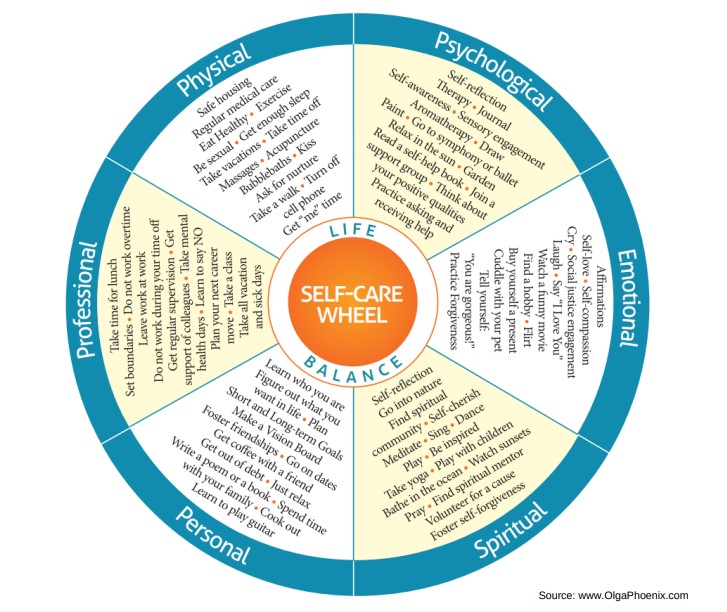
Information derived from Doc Talk conducted with Bridgitte Mathiasen, LMHC of Valley Psychiatry and Counseling Clinic
1.What are some of the challenges many of us are facing with our family members and roommates right now?
Since the onset of the pandemic, there has been a large increase in stress and anxiety. Many of our normal outlets for stress release–spending time with friends and loved ones, socializing, getting outside, are not currently possible and we are sometimes at a loss for how to cope. Families, or those with multiple members in their household, may find themselves spending more and more time together and have less time to refresh. Some people are feeling smothered, have broken routines or schedules, and have some challenges getting along with other members of a household. This can lead to more irritability and arguments with those we live with.
2. What are some suggestions to make some adjustments in your household to reduce some of the stress?
You are encouraged to try tapping into where you are having the issues and to be specific about what’s bothering you. Once you can name that, then you can create a plan with members of your household. Talk with other family members about how you’re feeling and share your concerns to see if you can come together to find solutions.
The acts of communicating, collaborating, and connecting are important and should be built into the structure of the family for things to run smoothly.
3. For those of us with younger ones in the home, what recommendations do you have for them?
Our little ones often look to us to model good behavior and how to respond in challenging situations. If we can take care of ourselves, that can help show them healthy ways to handle their emotions. Listen to your children and find out what they are struggling with. It may be that they’re sad not being able to see friends, go outside, or go places. Be as creative as possible and give them the best experience that you can. When they seek an option that is not currently possible, give them another choice that is possible. Give them hope that things will get better and plan something to look forward to.
4. What are some signs and symptoms of conflict or interpersonal stress being too overwhelming?
If you notice your thoughts drifting toward phrases like, “this is too much,” or “this is too overwhelming,” then it may helpful to seek support. If you’re feeling stuck and hopeless, or you notice changes in your mood and functioning, these can be signs you may need more support. Some resources for seeking support in the short term, including other videos and links for web sites, crisis lines, and counseling are offered here.
There are things that you can do for yourself and things you can do outside yourself to help cope with the challenges we are facing. Bridgitte Mathiasen finds that self-care is an important skill to find balance in life. She often provides her patients with the Self-Care Wheel, which focuses on six aspects of well-being and ways for supporting each aspect:
- Psychological–talk to your therapist, journal, self-reflect.
- Emotional–be good to yourself, display self-compassion, compliment yourself.
- Spiritual–tap into your faith for support, practice yoga, explore different philosophies.
- Personal development–learn a language, start a business, create a website for yourself.
- Professional–take time for lunch, use vacation/sick days available.
- Physical–exercise, get out of the house, move your body.

This Self-Care Wheel was inspired by and adapted from “Self-Care Assessment Worksheet” from Transforming the Pain: A Workbook on Vicarious Traumatization by Saakvitne, Pearlman & Staff of TSI/CAAP (Norton, 1996). Created by Olga Phoenix Project: Healing for Social Change (2013). Dedicated to all Trauma professionals worldwide.
5. When can group or family counseling be helpful? What do you recommend?
If you are considering scheduling an appointment with a therapist, just schedule it. It can be hard right now to get in to see a counselor, so if you make the appointment, you can always cancel if you feel you don’t need it. This is a challenging time and you do not need to struggle alone. There are also many hotlines available to support those struggling as we continue to experience the effects of the pandemic.
- Washington Listens. When contacting this support line, you will speak with a support specialist and they will help you connect with resources in your community. It is open from 9 AM to 9 PM Monday- Friday and 9 AM to 6 PM Saturdays and Sundays. Call, text, TTY and language services are available. 1.833.681.0211
- Crisis Connection. This 24-hour hotline provides support to individuals and families as well as friends of those in emotional crisis.
- Crisis Text Line. Free 24/7 support. Text HOME to 741741 to receive a message from a trained crisis counselor.

